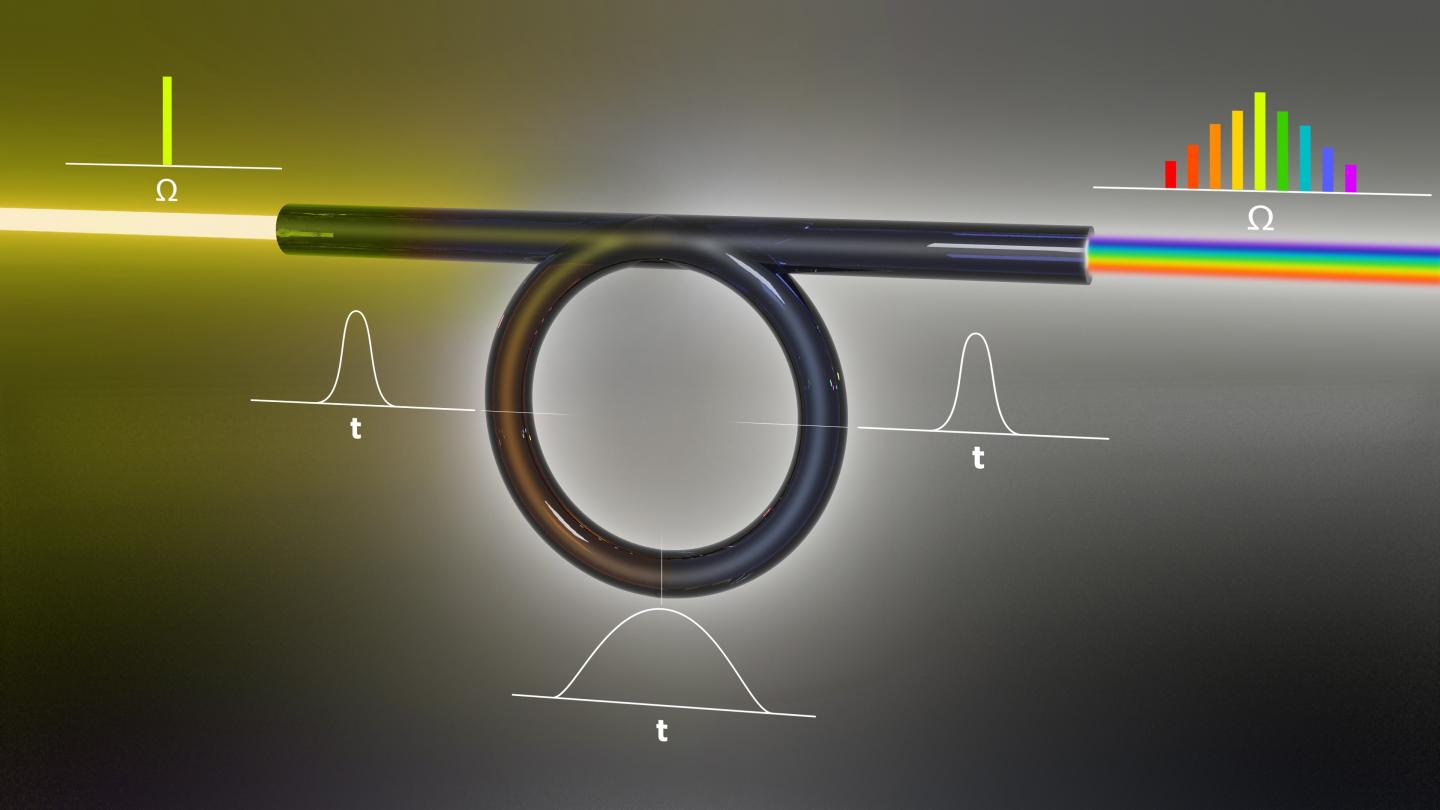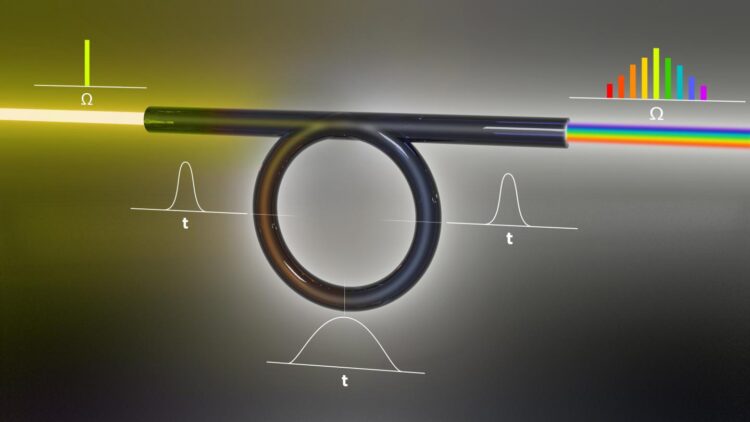Institute of Optics research sets record for shortest laser pulse for newly developed technology, work that has important applications in engineering and biomedicine.

Credit: Illustration by Michael Osadciw/University of Rochester
University of Rochester researchers are setting a new standard when it comes to producing ultrafast laser pulses over a broader range of wavelengths than traditional laser sources.
In work published in Physical Review Letters, William Renninger, an assistant professor of optics, along with members of his lab, describe a new device, called the “stretched-pulse soliton Kerr resonator,” that enhances the performance of ultrafast laser pulses. The work has important implications for a range of engineering and biomedical applications, including spectroscopy, frequency synthesis, distance ranging, pulse generation, and others.
The device creates an ultrafast laser pulse–on the order of femtoseconds, or one quadrillionth of a second–that’s freed from the physical limits endemic to sources of laser light–what laser scientists call laser gain–and the limits of the sources’ wavelengths.
“Simply put, this is the shortest pulse ever from a gain-free fiber source,” Renninger says.
Renninger and his team of graduate research and postdoctoral associates improved upon Kerr resonators, an exciting new alternative for generating femtosecond laser pulses that have been the subject of considerable research.
The lab overcame a challenge to pulse duration in other versions of Kerr resonators by discovering a new soliton–a short burst or localized envelope of a wave–that maintains its shape while propagating at a constant velocity. The solitons generated in Renninger’s device differ from the solitons in other Kerr resonators, specifically in the shape and behavior of the stretching pulses they create.
“It is stable in the sense it keeps repeating the same thing over and over, getting longer, then shorter, longer then shorter,” Renninger says.
The pulses “feature a broad spectral bandwidth and a compressed pulse duration of 210 femtoseconds, which is the shortest pulse duration observed to date from fiber Kerr resonators,” the researchers state in the paper.
Lead author Xue Dong is a graduate research associate in the Renninger lab. In addition to Renninger, other coauthors are Qian Yang and Christopher Spiess, also graduate research associates in the lab, and Victor Bucklew, a former postdoctoral associate in the lab.
The study was funded by in part by the University’s Technology Development Fund, a University Research Award, and by the National Institutes of Health. A patent is pending. Interested parties can contact Curtis Broadbent, licensing manager at URVentures, about licensing the technology.
Making ultrafast lasers more accessible
Renninger, an expert in creating sources for femtosecond lasers, received his BS and PhD degrees in applied physics from Cornell University. Before joining the Institute of Optics, he was a postdoctoral associate and an associate research scientist in the Department of Applied Physics at Yale University.
He recently received a National Science Foundation CAREER award, which includes funding to create open source access to information for designing and creating advanced lasers sources generating femtosecond pulses.
“There are now commercial products, but they’re very expensive. They are prohibitive for many research groups with limited budgets for equipment,” Renninger says.
Much of the cost is for expertise, not components, so his group will use part of the CAREER funding to provide consulting for research groups at smaller universities in how to design and build femtosecond lasers for basic research.
“The ultimate goal is to have a design guide published on our website for everybody,” Renninger says.
###
Media Contact
Bob Marcotte
[email protected]
Original Source
https:/
Related Journal Article
http://dx.




